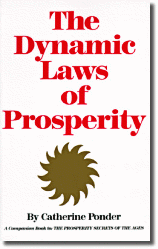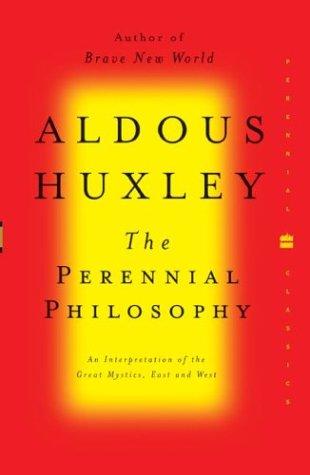One of the authors that Rhonda Byrne urges people to read is Catherine Ponder, who, she says, teaches the truth of the Bible stories - that Jesus, the prophets and patriarchs were in fact wealthy people who despised poverty.
When I worked in a New Age bookshop in Sydney in the 90s and 2000s Ponder's books were very popular, despite their high price. Published by DeVorss publications, Catherine Ponder is a Unity minister (ordained in 1956) who wrote quite a number of books, all based around her particular reading of the Bible as a prosperity text. After her endorsement in The Secret, it seems as though her books have reached a whole new generation of readership, and I notice that the Rev. Dr. Barbara King, one of my favourite women in the world, is teaching at the moment a course based on Ponder's books at her New Thought-based Hillside Chapel in Atlanta, Georgia.
I have gone back to look at Catherine Ponder's book The Dynamic Laws of Prosperity - a substantial text at 430pp. Ponder's style is folksy and engaging, and highly reminiscent of the earlier books of Florence Scovel Shinn. The book is filled with miraculous stories of people who have applied the techniques of New Thought in their lives and achieved marvellous and unexpected results, usually in the shape of improved finances, work opportunities and greater prosperity. Ponder urges her readers to re-awaken to older dreams of greatness, happiness and wealth, and to employ the usual New Thought technologies of visualisation and affirmation to progress towards greatness.
I'm not sure that Ponder needed to write quite as many books on the same theme as she did - the central message is repeated ad infinitum - but I have no doubt that she was sincere in her beliefs and her passion and enthusiasm is patent in her writing style. Hers was a thoroughly New Thought vision of the possibility of all people to be great, to be rich and happy and ultimately useful. There is, as well, something of the old-fashioned self-help notion of thrift and financial indepenedence, not to mention self-responsibility. The Ponderian subject is financially independent, working hard to enjoy good and beautiful things and to help others who may be less fortunate.
Ponder sees the individual as the primary source of their own poverty. The natural state is one of wealth, and if we would only stand aside we would allow the Universe to assert its own inevitable prosperity in our lives once again. She writes:
"In order to become financially independent, to the extent of having a constant financial income, it is necessary to discard a number of negative attitudes."
For Ponder, the first step towards wealth is the reorganisation of the mind, filling it with images of the things we want and of the limitless possibilities before us. No wonder she is endorsed so heartily in The Secret.
- For more information about Florence Scovel Shinn, one of Ponder's principle influences, look here
- To read more about Catherine Ponder on her publisher's website, look here
- An interview with Rhonda Byrne, creator of The Secret









